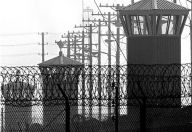Science and society
Many people have suggested that everything comes down to the fact that Zimbardo’s Californian students of the 1970’s are culturally very different from a cross-section of British men in 2001. That is doubtless true, but if one argues that our participants were less liberal than Californians then why, at the start of the study, did they rebel against mild inequalities? If one argues that people nowadays are more liberal than in the 1970’s, then why did they embrace tyranny at the end of the study? The fact is that simple cultural differences cannot explain the complex dynamics of the studies. For that one needs to look at differences in the ways that these studies were conducted.
In effect, the Stanford Prison Experiment was an exercise in leadership. Although Zimbardo writes that “participants had no prior training in how to play the randomly assigned roles” in fact he gave his Guards a very clear briefing:
You can create in the prisoners feelings of boredom, a sense of fear to some degree, you can create a notion of arbitrariness that their life is totally controlled by us, by the system, you, me … They can do nothing, say nothing, that we don't permit…
By contrast, we did not instruct our Guards on how to behave. We didn’t act as their leaders. We stood aside, even as they struggled to make the system work.
The SPE is a study of what happens when a powerful authority figure (Zimbardo) imposes tyranny. Our study tells the more complex story of what happens when you leave people to deal with inequality on their own, and of how they can end up creating tyranny for themselves.

